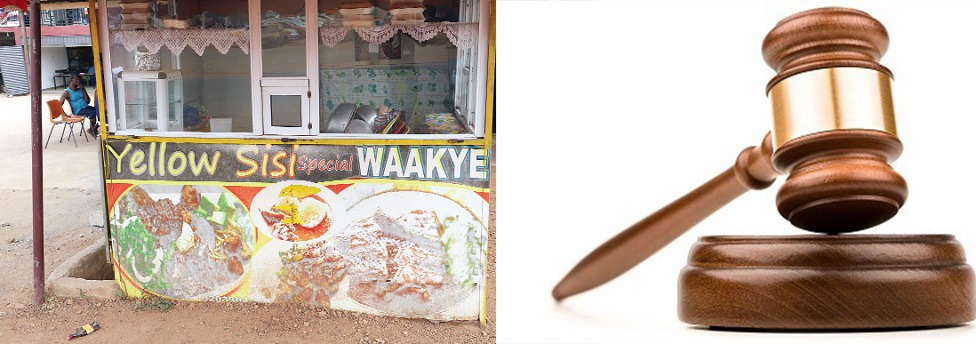The matter of suspected waakye poisoning, death: Public Health Act on sale of food
The individuals are said to have eaten popular meal, Waakye, bought from a food joint at Oyibi Bush Canteen Junction in Accra last Friday.

This morning, the Daily Graphic, reported a suspected food poisoning incident at Oyibi, where five people, including a pregnant woman, are reported dead, with 40 others hospitalized.
The individuals are said to have eaten popular meal, Waakye, bought from a food joint at Oyibi Bush Canteen Junction in Accra last Friday.
The paper also indicated that while officials at the Valley View Hospital said all affected patients had been discharged, the hospital had forwarded data to the Kpone Katamanso District Hospital to investigate further and determine the cause of the problem.
While efforts are being made to investigate the matter, here is what sections of the Public Health Act 2012, (Act 851) say on this issue:
Sections 101 and 105 particularly prohibit the sale of poor-quality food and also indicate that food for sale must meet a prescribed standard. In subsection (1) it maintains that a person shall not sell food that is not of the nature, substance, safety or quality as demanded by a purchaser.
“It is not a defence to an offence to plead that the purchaser was not prejudiced because the food was bought for analysis or for a purpose other than for consumption,"
Further in section 106, the Act mandates that food that is to go on sale is manufactured under the supervision of a qualified person to do so. “A person shall not manufacture a food for sale unless the food is manufactured under the supervision of a person with appropriate knowledge and qualification who can ensure the purity, quality and wholesomeness of the food,” it says. It does appear that in this case, the supervisor may as well be the waakye vendor.
Results of contravention
Section 110 (1) of the Act submits that one may be liable to a fine of not less than one thousand penalty units and not more than seven thousand five hundred penalty units (GHC 1200 and GHC 84 000) or a prison term of not less than four years or both.
“(2) In proceedings for an offence under a provision of a section referred to in subsection (1), in respect of food containing an extraneous matter, unless the presence of the extraneous matter has rendered the food injurious to health, it is a defence for the accused to prove that the presence of that matter was an unavoidable consequence and forms part of the process of preparation or collection of that food.”
There’s equally an issue of environmental sanitation that may arise from this incident. Although the news report did not mention any sanitation concern when the reporter visited the food joint, Act 851 prescribes penalties for breaches of such kind in sections 51 and 52.
“ A person commits an offence if that person sells, serves or offers for sale food that is unwholesome or unfit for human or animal consumption and is liable on summary conviction to a fine of not more than one thousand penalty units or to a term of imprisonment of not more than four years or to both.
“A person shall not sell, prepare, package, convey, store or display for sale, food under insanitary conditions to the public. (2) A person who contravenes subsection (1) commits an offence and is liable on summary conviction to a fine of not more than one thousand penalty units or to a term of imprisonment of not more than four years or to both.”
What cause of action can authorities take in this situation?
According to Act 851, authorised officers (usually officials from the Food and Drugs Authority), may enter the premises to take samples and examine anything that an officer believes is used or is capable of being used for the preparation of the food.
However, a street food joint like this kind may be registered with an Assembly, exercising authority in that particular area. Officials from the Assembly and in this case for Oyibi, the KPONE – KATAMANSO MUNICIPAL ASSEMBLY is responsible for the Issuance of food vendors certificate, and premises inspection, which the Assembly says it undertakes daily.
Additionally from the news report, it appears some relatives of the deceased victims have reported the matter to the police. If police investigations should find probable cause, the food vendor could likely be charged for offences under the Criminal Offences Act, 1960 (Act 29).


